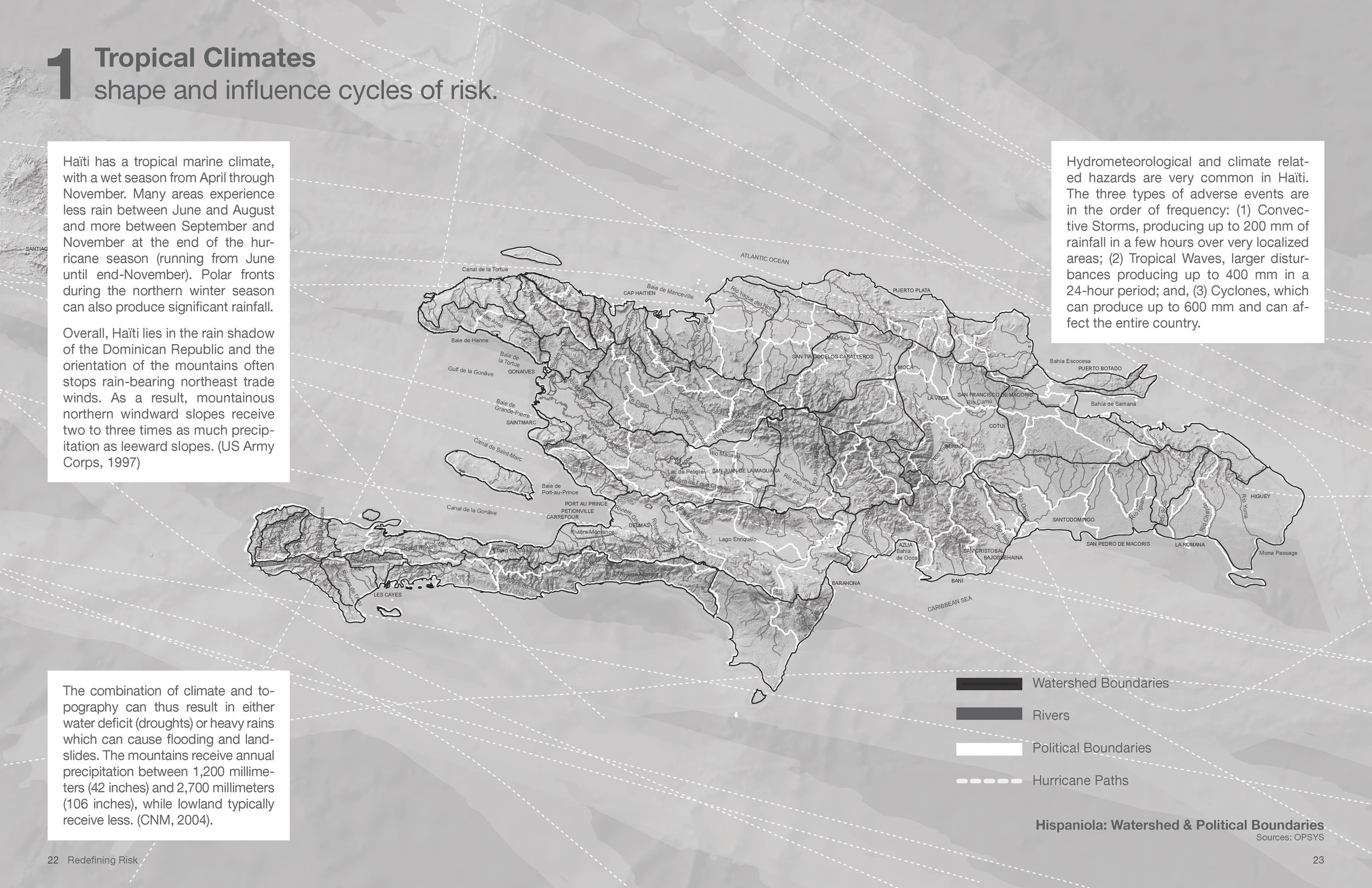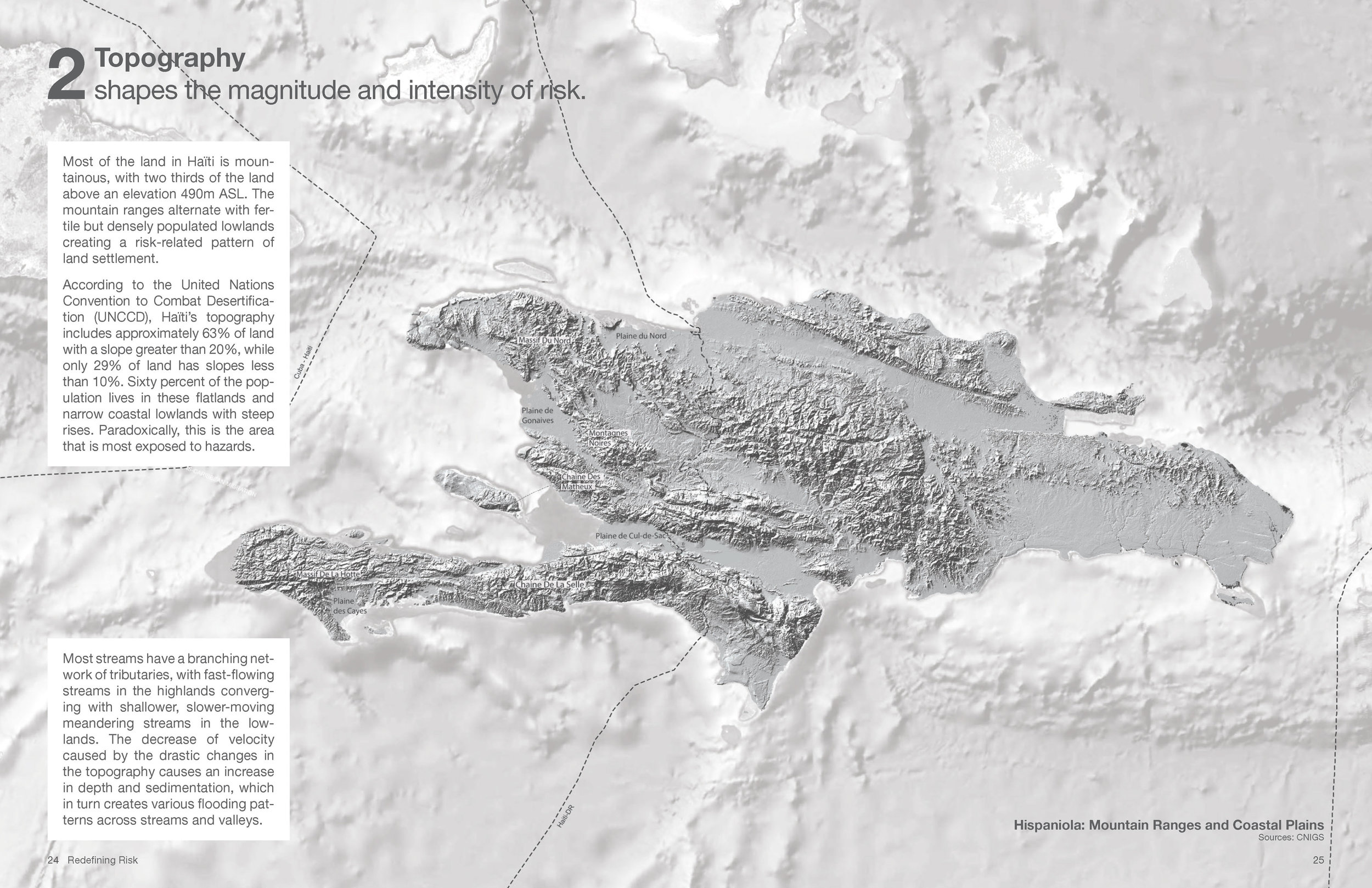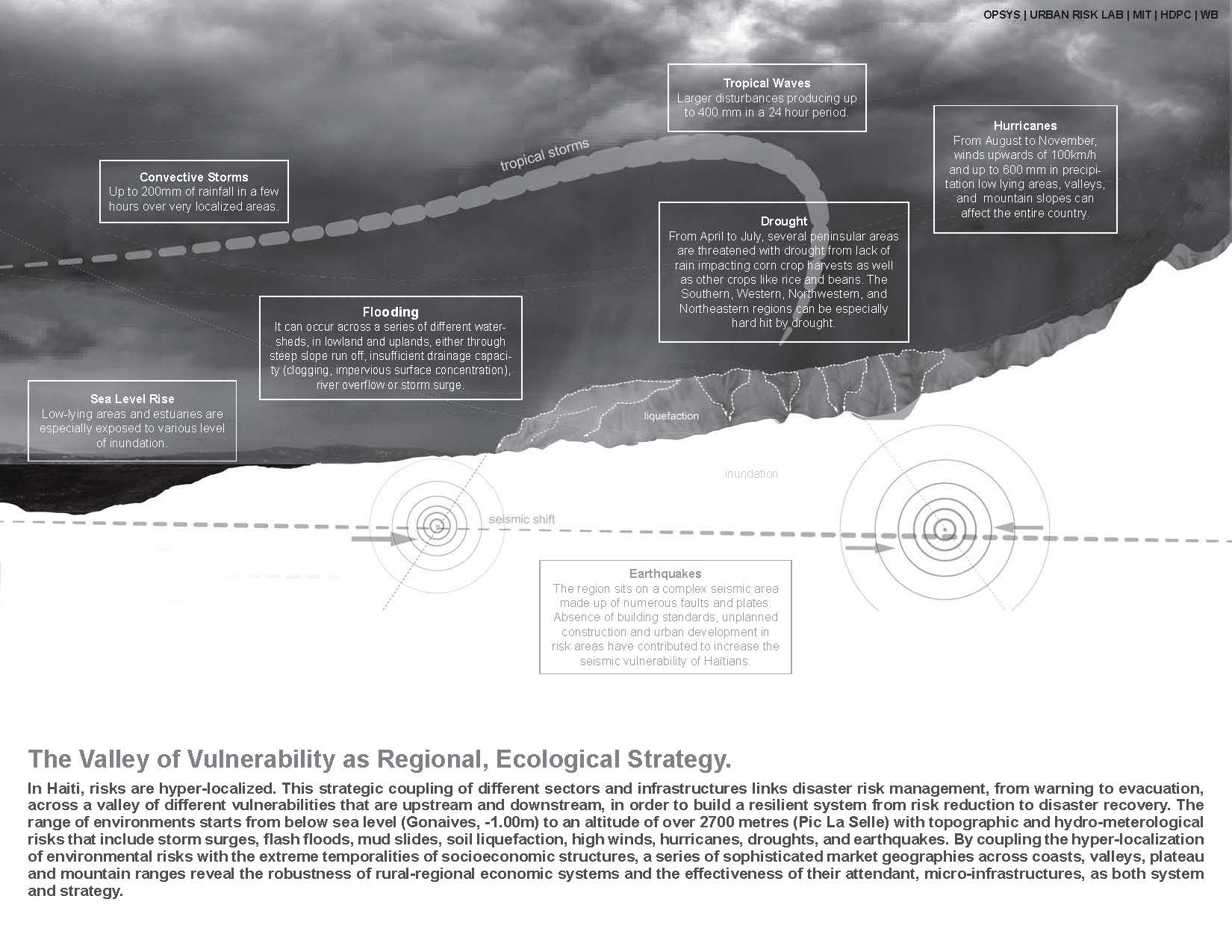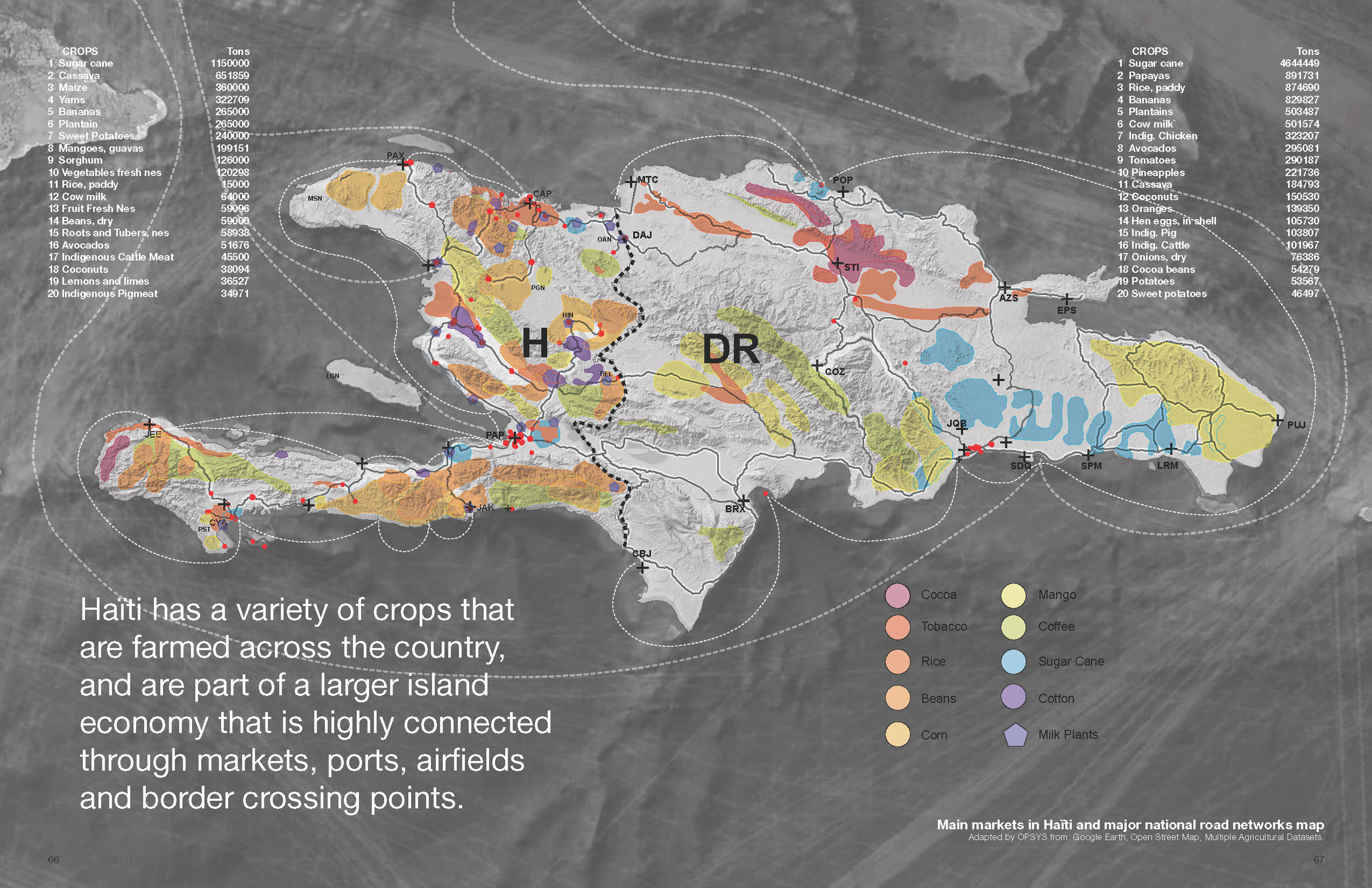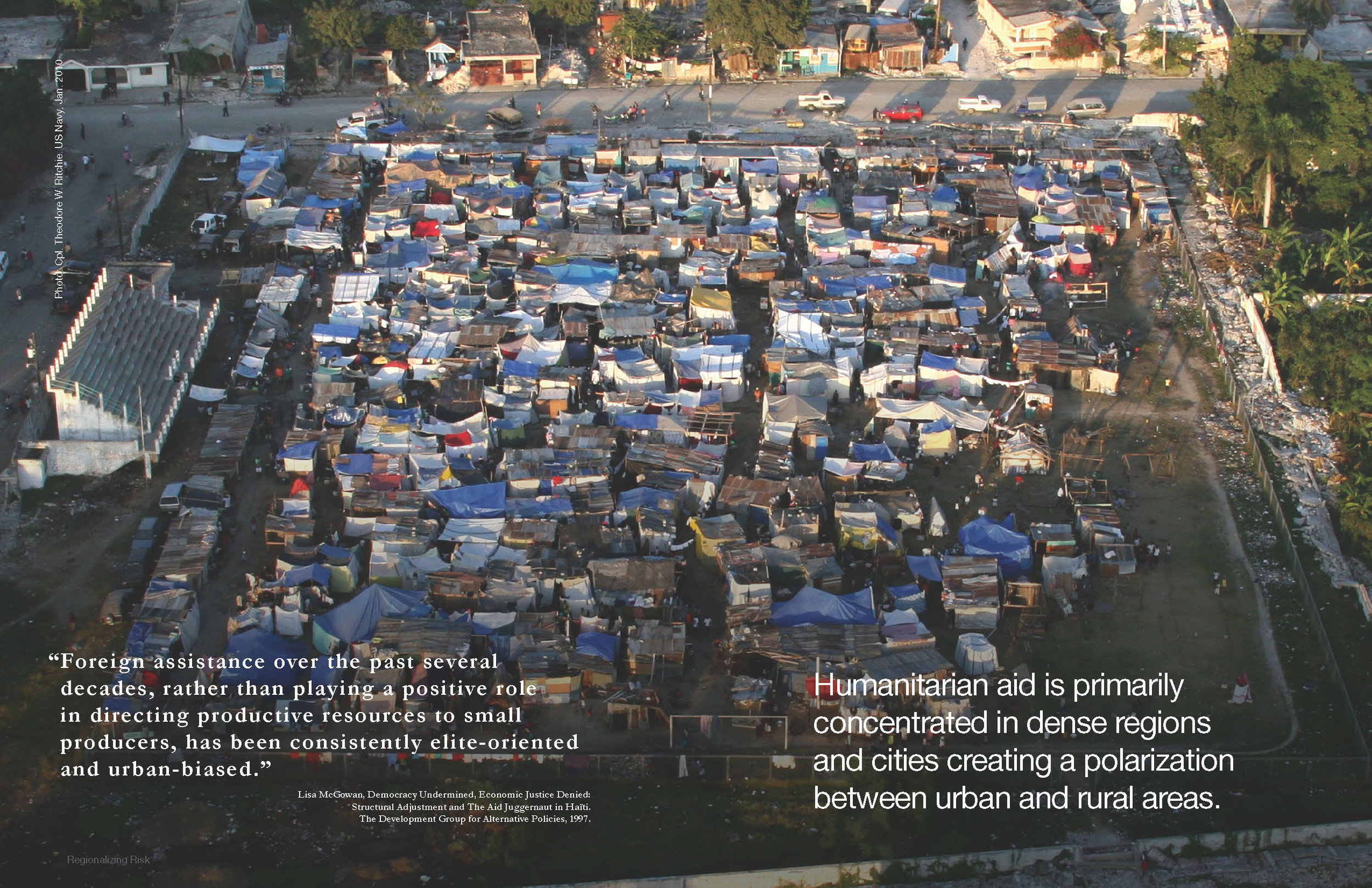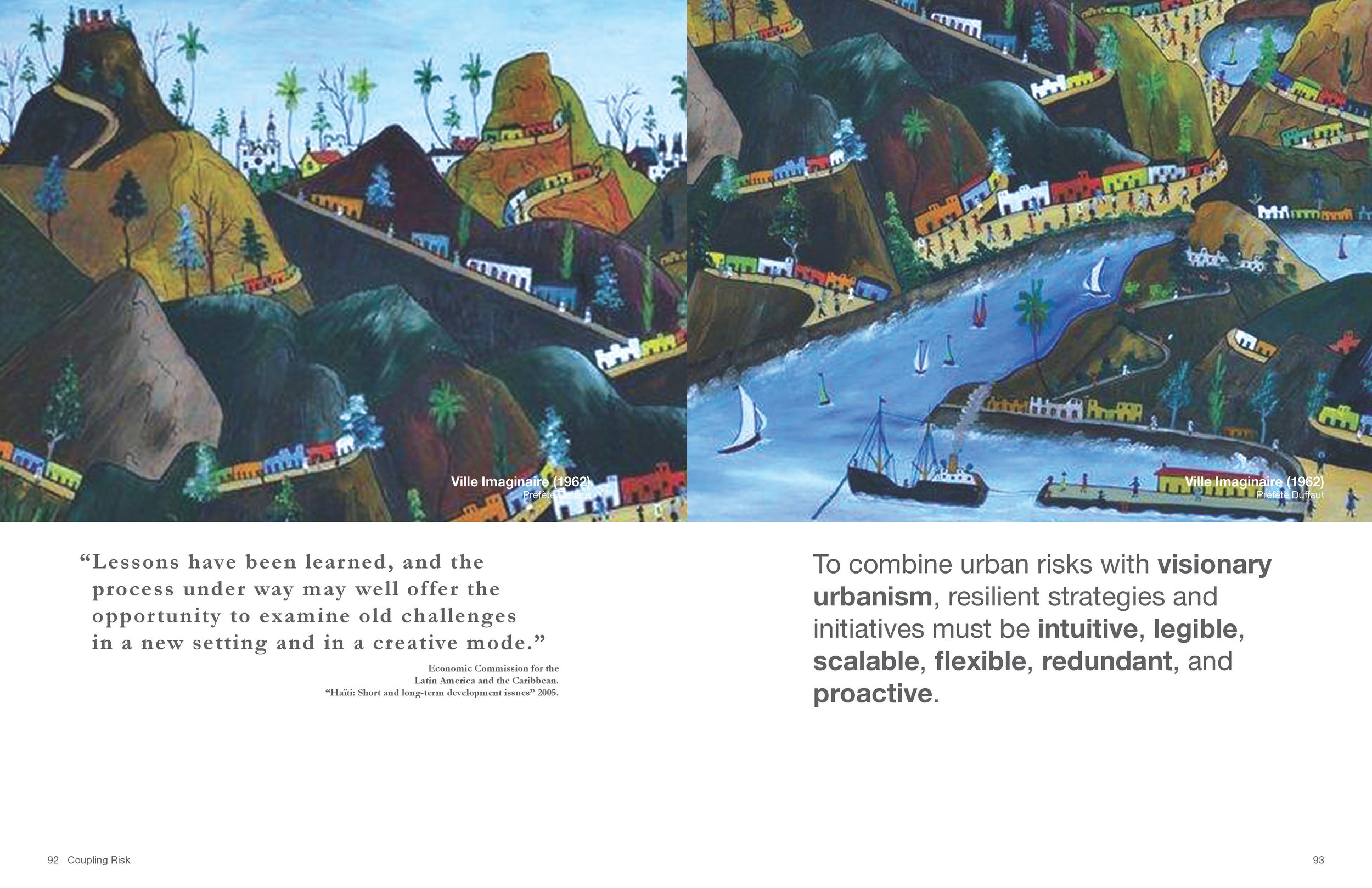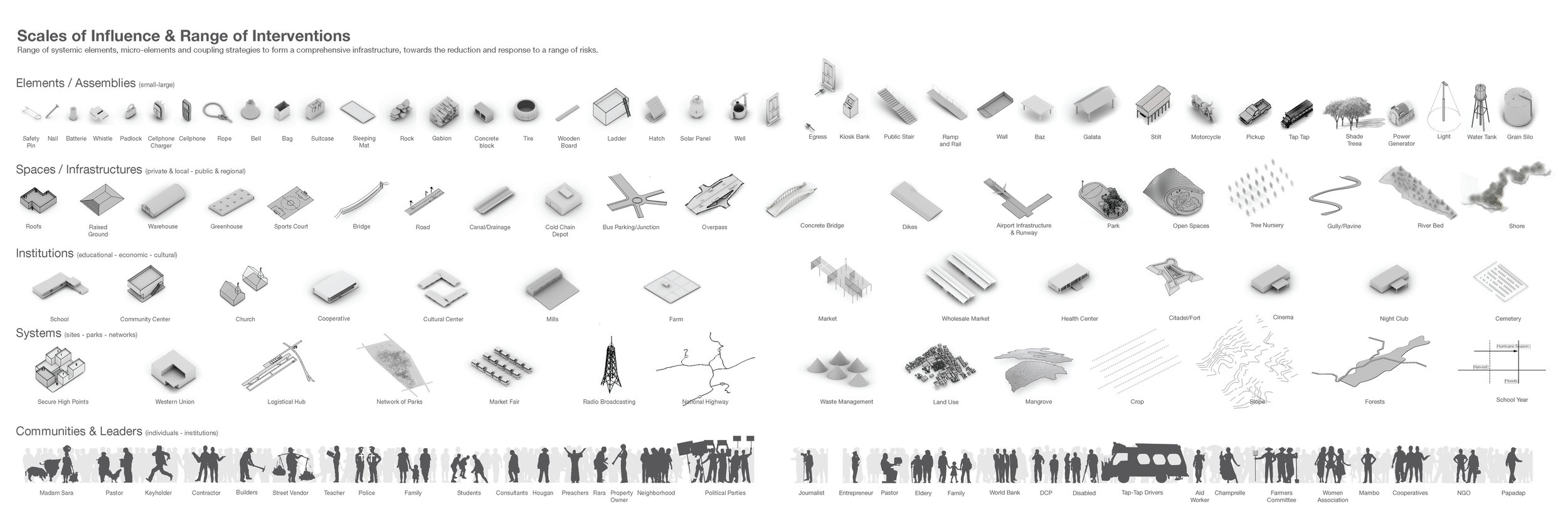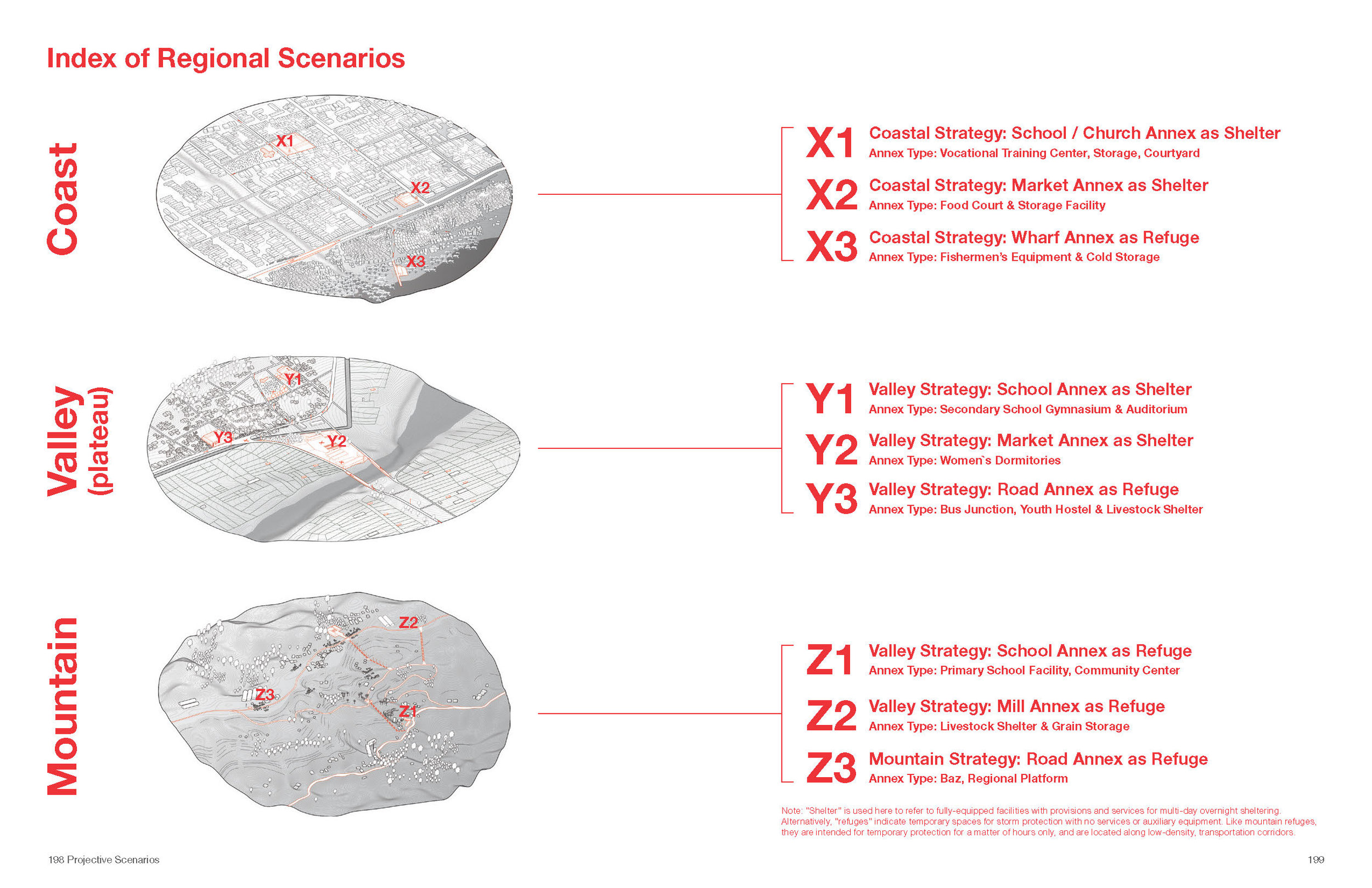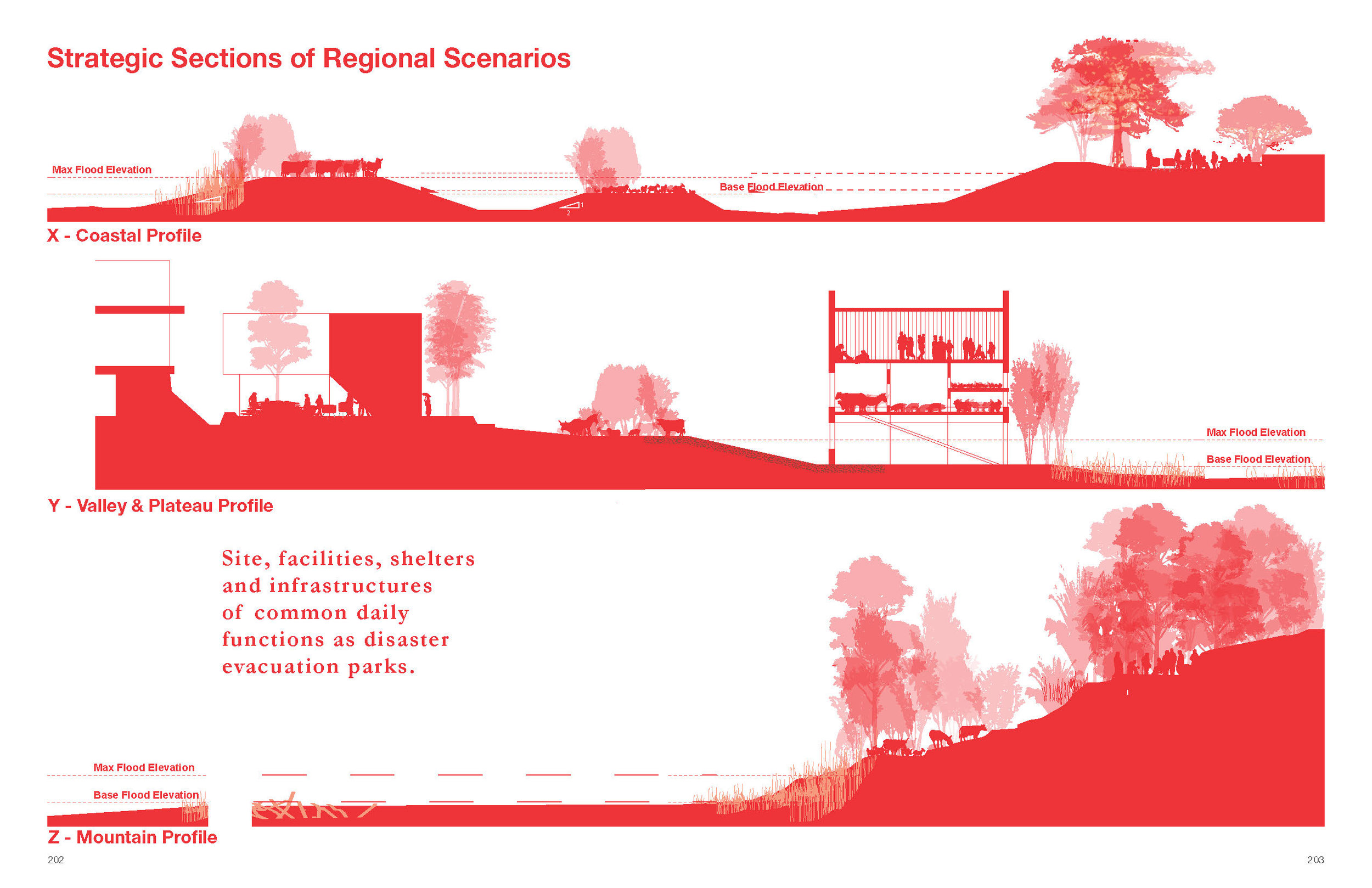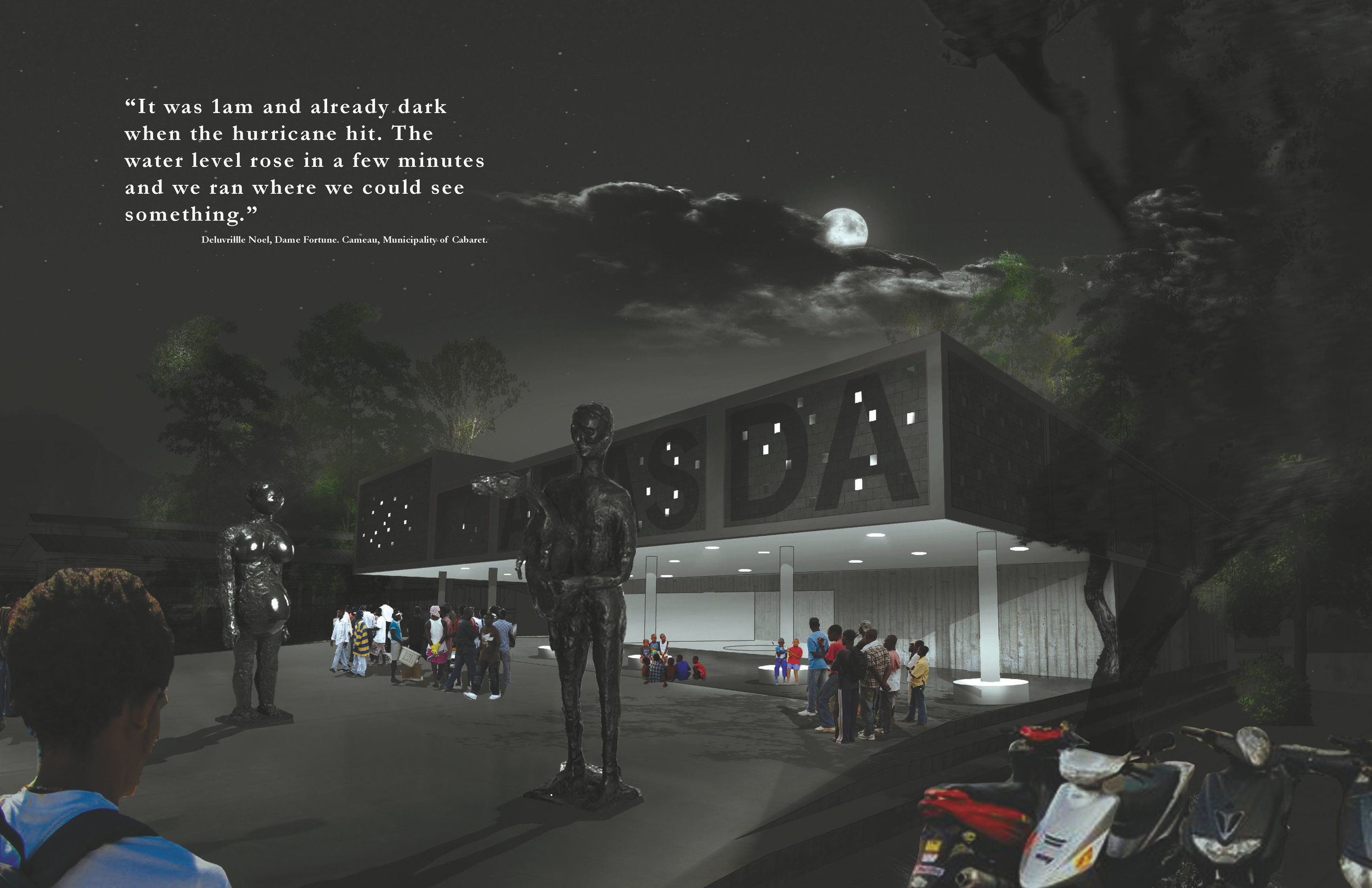Security, Livelihood & Landscape: Towards a Strategy of Shelter as System, and Risk as Region
Every year, during the annual tropical storm season, hundreds and thousands of Haïtians prepare for, and respond to, the imminent hazards associated with flooding, high winds, and droughts, as well as the effects brought on by the risk of property damage, displacement, and relocation. Other, less predictable hazards, such as landslides, flash floods, and earthquakes, are more difficult to prepare for, yet the response to these events reveal a remarkable level of social resilience that is demonstrated by the high level of initiative, energy, and engagement of communities across different localities of the country.
While the 2010 earthquake is commonly referred to as a milestone in the history of world disasters, and especially of catastrophes in Haïti, the event should not overshadow the complex environmental vulnerabilities and political histories that existed before 2010 and underlie a complex, political and economic history. While considerable attention is given to the extreme dynamic of earthquakes, hurricanes, and cyclones, the cyclical nature of tropical weather must be understood as equally relevant and important for urban development, infrastructure planning, and risk-reduction. Since 96 percent of Haïtians are currently exposed to two or more vulnerabilities, the underlying lens of this project assumes a level of risk distribution that is relational to urban concentrations, social mobilities, and geographic locations, as well as ecological and economic dynamics. By doing so the project aims to avoid creating a false sense of socio-economic security, skewed results, naive assumptions or fake necessities, that precise mapping or precise quantitative analysis based on imprecise, incomplete, and outdated data may sometimes generate.
By focusing on the intrinsic and embodied strengths within Haïti, this project aims to actualize, spatialize, and catalyze existing relationships and build new connections and strategies that center around current resources and existing values. For example, while Haïti may be the lowest ranking country in the world at No.144 in terms of the quality of overall infrastructure in the recent “2012–2013 Global Competitiveness Report” by the World Economic Forum, it was ranked at No. 40 for its high level of “Female Participation in the Labor Force”, ahead of the United States (#44) and Germany (#49). Given the growing dynamics of urban cultures and fine-grained scalar economies, the different variables and forces associated with urban population movements and settlements are especially important in understanding the dynamics of urban densities, regional economies, and varying ecological conditions. As the UN has identified in the World Disaster Reduction Campaign 2012, women are powerful agents of change. “Womens’ community organizations have insight, information, experience, networks, and resources vital to increasing disaster resilience.” With strong ties of education within the home as well as vibrant social and economic networks, Haïtian women are critical resources; this projects builds upon their poorly documented, yet remarkably vital, social infrastructures.
In summary, this report takes on a comparative, qualitative, and spatial approach to the research in order to reveal and extract quantitative, geographic, urban, and social measures of current evacuation practices that tightly weave urban and ecological conditions with risk-related strategies. Through comparisons with other regions of similar economic, ecological, and population conditions, the research presents a wide range of currently practiced strategies, techniques and measures, from hard structural measures to soft, social mechanisms, that can be gleaned from a comparative outlook of Haïti within a shared landscape of risk across the Caribbean and intertropical region.
Partners
Michel Matera - Sr. Disaster Risk Management Specialist, World Bank
Yolène Surena - Director, Department of Civil Protection, Ministry of Interior, Government of Haïti
Leslie Voltaire - Architect and Urban Planner, Haïti
Contributors
Miho Mazereeuw, Pierre Belanger, Phil Thompson, Christian Werthmann, Carol Voltaire, Laurent Corroyer, Erdem Ergin, Anya Brickman Raredon, Christina Milos, Aditya Barve, Chris Bennett, Martin Pavlinic, Oscar Malaspina, Einat Rosenkrantz, Nicholas Polansky, Barry Beagen, Adriana Chavez, Anya Domlesky, Sky Milner, Ghazal Jafari, Zahraa Saiyed, Jenny Hong, Alexander Dixon, Rudy Dieudonne, Erioseto Hendranata
Copy Editors
Karen Moser, Edad Mercier

